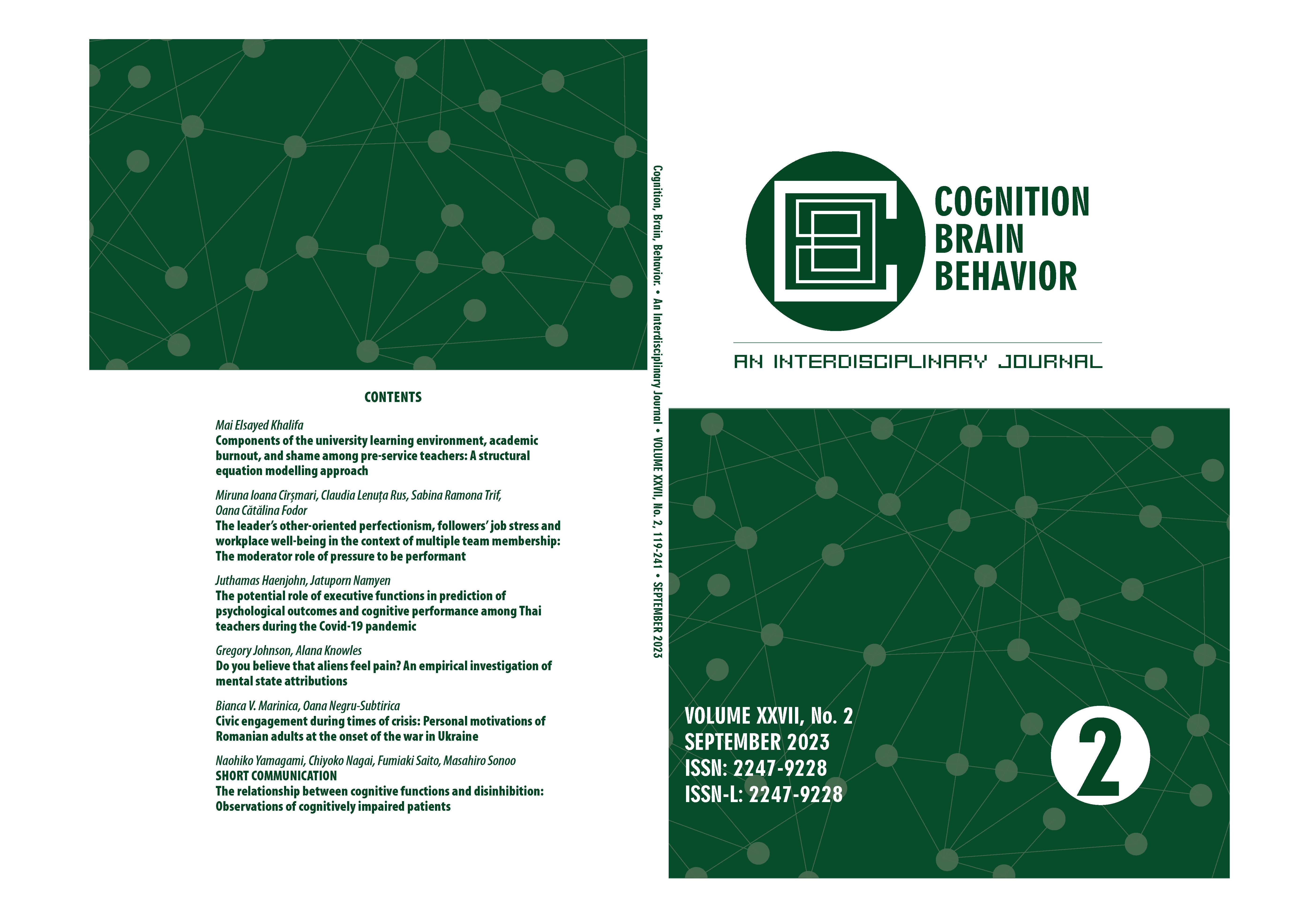The potential role of executive functions in prediction of psychological outcomes and cognitive performance among Thai teachers during the Covid-19 pandemic
The potential role of executive functions in prediction of psychological outcomes and cognitive performance among Thai teachers during the Covid-19 pandemic
Author(s): Juthamas Haenjohn, Jatuporn NamyenSubject(s): Higher Education , Educational Psychology, Methodology and research technology, Health and medicine and law, Distance learning / e-learning
Published by: Editura Asociației de Științe Cognitive din România (ASCR)
Keywords: executive functions; stress; burnout; well-being; Covid-19 Pandemic;
Summary/Abstract: Brain executive functions (EFs) play a key role in both positive and negative impact on human psychological outcomes. This present study investigated the potential effects of executive impairment (EI) on stress, burnout, well-being, and working memory among teachers during Covid-19 pandemic. We recruited 448 male and female teachers from eastern regions of Thailand using multistage sampling technique. Data were collected at schools with research instruments, including Teacher Primarily Data Questionnaire, Ryff Scales of Psychological Well-Being, Suanprung Stress Test-20 (SPST-20), Maslach Burnout Inventory for Educators (MBI-ES), Behavior Rating Inventory of Executive Function-Adult Version (BRIEF-A), and Letter Number Sequencing (LNS). Statistical analyses were performed with descriptive statistics, bivariate correlation, and structural equation analysis (SEM). Results showed that dysfunctions in EFs could predict stress (21.9%). EI and stress could predict burnout (44.8%). EI with stress and burnout could predict working memory (11.9%) and well-being (48.7%). Problems related to EFs showed the direct effect on stress, burnout, working memory, and well-being at the statistical level (p < .001) with the direct effects of .47, .23, -.38, and -.30, respectively. Furthermore, problems related to EFs showed the indirect effect on burnout, working memory, and well-being at the statistical level (p < .001) with the indirect effects of .24, -.24, and .12, respectively. Therefore, EFs could predict psychological outcomes and cognitive performance, for example working memory. In conclusion, EFs play the key role in psychological and behavioral management during the pandemic. This data can be used for planning and designing the effective EFs training program to subsequently promote psychological outcomes and cognition among teachers.
Journal: Cognition, Brain, Behavior. An Interdisciplinary Journal
- Issue Year: XXVII/2023
- Issue No: 2
- Page Range: 173-198
- Page Count: 26
- Language: English
- Content File-PDF

